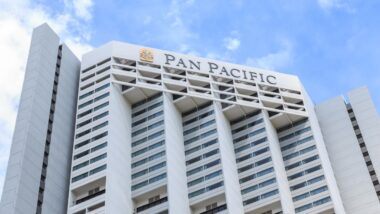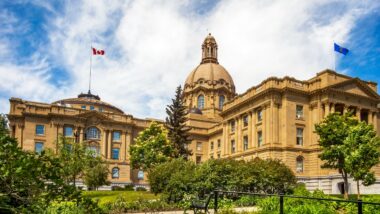Top Class Actions’s website and social media posts use affiliate links. If you make a purchase using such links, we may receive a commission, but it will not result in any additional charges to you. Please review our Affiliate Link Disclosure for more information.
“Whistleblowers protection” refers to laws that protect those who uncover fraud or other illegal activity, mainly at their places of employment.
Whistleblower protection laws were enacted to encourage people to report illegal behavior, especially that which affects the government. Unfortunately, many who become whistleblowers experience retaliation in the form of demotion, dismissal, and other negative treatment. Some companies have policies about whistleblowers that aim to stem whistleblower retaliation; however, whistleblowers may also be protected by federal law and other laws, depending on their jurisdiction.
Whistleblower Definition
The definition of whistleblower in Canada is a person, usually an employee, who reveals “corporate wrongdoing, usually in their organization, to law enforcement.” “Wrongdoing” can, of course, occur in both the public and private sectors. Whistleblowing refers to the act of an employee reporting this wrongdoing when they believe that the public interest being harmed by the activity is more important than the interests of the organization where they work.
Generally, whistleblowing must be done in good faith and to report serious illegal and/or corrupt activities.
What Are the Canada Whistleblower Protection Laws?
Unfortunately, many whistleblowers face retaliation in the workplace after reporting illegal behavior. Retaliation can be as simple as firing the employee, but can also include demotions or other negative actions, such as issuing poor performance reviews, changing their schedules, and other actions that make the employee’s work-life difficult.
In Canada, while there is not a comprehensive whistleblower protection law, a number of regulations on the federal and provincial level help protect whistleblowers.
In 2004, the Criminal Code in Canada was updated to add some whistleblower protections. Under section 425.1 of the Criminal Code, it is a criminal offence for employers or those acting on behalf of the employer, along with those in a position superior to a whistleblowing employee to adversely affect that employee’s employment, including by demotion, disciplinary action, or threats, in order to get the employee to stop providing information to law enforcement about an offence committed by their employer.
In addition, the Criminal Code prohibits threatening or retaliating against an employee who has already provided such information to law enforcement by making the retaliation an offence. Either offence can carry hefty fines for companies and up to a five year prison sentence.
These protections under the Canada’s Criminal Code only apply to employees who report to law enforcement officials, however, and not reports made to news or advocacy organizations.
Whistleblower protection laws were expanded for federal public sector workers in 2007 under the Public Servants Disclosure Protection Act. Under the Act, public sector employers must create a code of conduct protecting whistleblowers. These codes must protect whistleblowers in the public sector from disciplinary actions and other reprisals. The penalty for violating these codes can include reinstatement or damages.

Most of the federal and provincial whistleblower protection laws apply to the public sector; however, there are limited laws that apply to private sector employers in Saskatchewan and New Brunswick. These laws protect whistleblowers from threats, firing, or discrimination as a result of reporting or testifying about illegal behavior committed by their employer. These protections extend to internal reports of illegal conduct, as well as reports to law enforcement.
Those who would become a whistleblower may wonder “can a whistleblower remain anonymous?” The answer is yes, in some cases. In Canada, the Canadian Public Accountability Board offers an anonymous hotline where whistleblowers can report illegal behavior by their employers.
Is Whistleblower Protection Enforced?
An employee’s duty of fidelity to their employer is well-established in law; however, whistleblowing is becoming an increasingly accepted exception to that duty. In other words, while whistleblower protection laws are patchy in Canada, the trend is to improve and enhance those protections so employees feel secure reporting illegal behavior by their employers.
Whistleblower protections will only be enforced when the employee reports illegal behavior in “good faith,” meaning that the employee reports behavior that they truly believe to be illegal out of concern for the public interest and not because of another employment or personal dispute.
Canada Whistleblower Cases
Lately, the Supreme Court of Canada has favoured a broad interpretation of provincial whistleblowing laws. In a Saskatchewan case, Merk v. International Association of Bridge, Structural, Ornamental and Reinforcing Iron Workers, Local 77, the Court upheld whistleblower protection for employees who first reported problematic activity internally, rather than going to law enforcement.
However, some experts say that recent cases have exposed weak whistleblower protections in the country, especially compared with more robust laws in the United States.
How to Find a Whistleblower Attorney
Experienced whistleblower attorneys can help a prospective whistleblower understand their rights under whistleblower protection laws. If you are concerned about illegal activities at your place of employment, Top Class Actions can help you connect with an experienced lawyer to consider whether whistleblowing is the right path.
Do you know of illegal or corrupt behavior at your place of employment? Are you considering becoming a whistleblower? Tell us more about it in the comment section below!
Read More Lawsuit & Settlement News:
A Guide to Class Action Lawsuits in Quebec
Does Consumer Law Apply to Businesses?
ATTORNEY ADVERTISING
Top Class Actions is a Proud Member of the American Bar Association
LEGAL INFORMATION IS NOT LEGAL ADVICE
Top Class Actions Legal Statement
©2008 – 2024 Top Class Actions® LLC
Various Trademarks held by their respective owners
This website is not intended for viewing or usage by European Union citizens.

















